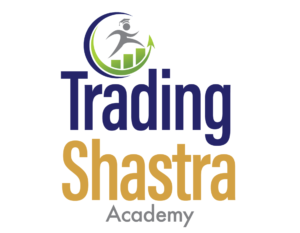
Stock Market Terms Every Beginner Must Know (2025 Edition)
The stock market can often feel like a complex puzzle for beginners. Words like bull, bear, derivatives, and dividends may seem intimidating at first, but understanding them is the foundation of successful trading. At Trading Shastra Academy, we believe that knowledge is the most powerful trading tool. This guide covers the essential stock market terms every beginner must know in 2025 to trade with confidence.
Whether you’re planning to start your first investment journey, join structured training, or simply want to understand the market lingo, this glossary will be your roadmap.
Why Learning Stock Market Terms Matters
Before you dive into buying or selling, it’s important to speak the language of the market. Without understanding stock market terms, you risk confusion, poor decision-making, and missed opportunities. Just like a cricketer studies rules before hitting the field, traders must familiarize themselves with these terms before entering the market.
At Trading Shastra Academy, we integrate real-time market analysis, options hedging, and mythological theme-based strategies into our teaching. But it all starts with a strong foundation — the terms.
Essential Stock Market Terms for Beginners (2025 Edition)
1. Stock / Share
A stock represents ownership in a company. When you buy shares, you become a part-owner and can benefit from the company’s growth and profits.
2. Equity
Equity refers to ownership in a company, expressed through stocks or shares. In India, equity is often synonymous with the cash market.
3. IPO (Initial Public Offering)
An IPO is when a company offers its shares to the public for the first time. Investors can subscribe to IPOs for potential early growth opportunities.
4. Bull Market
A period when stock prices are rising consistently, driven by optimism and strong investor confidence.
5. Bear Market
The opposite of a bull market — when stock prices decline for an extended period, reflecting fear and pessimism.
6. Bid and Ask
Bid Price: The maximum price a buyer is willing to pay for a stock.
Ask Price: The minimum price a seller is willing to accept.
The difference between the two is called the spread.
7. Market Capitalization (Market Cap)
The total value of a company’s outstanding shares. It helps categorize companies into large-cap, mid-cap, or small-cap.
8. Dividend
A portion of company profits distributed to shareholders, usually paid quarterly or annually.
9. Derivatives
Financial contracts like futures and options, whose value depends on an underlying asset such as stocks, commodities, or indices.
10. Index
A benchmark that tracks the performance of a group of stocks. For example, India’s Nifty 50 or Sensex shows how the overall market is performing.
11. Liquidity
How easily a stock can be bought or sold without affecting its price. Highly liquid stocks trade quickly with minimal price movement.
12. Hedging
A strategy to protect investments against potential losses. At Trading Shastra Academy, options hedging is a key focus of our training.
13. Stop Loss
An automatic order to sell a stock when it reaches a certain price, helping to limit losses.
14. Volatility
Measures how much a stock price fluctuates over time. High volatility means higher risk but also higher reward potential.
15. Arbitrage
The practice of buying and selling an asset in different markets simultaneously to profit from price differences.
How Trading Shastra Helps You Learn These Terms Practically
While reading definitions is useful, true mastery comes from live market experience. Trading Shastra Academy offers:
Real capital trading (₹10–50 lakh) for hands-on practice.
Loss coverage so beginners focus only on learning, not worrying about mistakes.
Stipend-based internships for practical exposure.
Algo trading tools worth ₹12,000/month free for students.
NISM certification preparation, strengthening your industry credibility.
This unique combination ensures that learners don’t just know stock market terms — they know how to apply them in real scenarios.
👉 Learn more about our programs here: Trading Shastra Academy
For authentic reference on market structures and regulations, visit the National Stock Exchange of India (NSE).
FAQs – Stock Market Terms Every Beginner Must Know
1. What is the most important stock market term for beginners?
Understanding stock itself is crucial — it represents company ownership.
2. What is the difference between stock and share?
They’re often used interchangeably, but “stock” refers to ownership in general, while “share” refers to a specific unit of ownership.
3. What is the meaning of IPO?
IPO means Initial Public Offering, the process where companies sell shares to the public for the first time.
4. What is a bull market?
A bull market is when stock prices rise steadily, driven by investor optimism.
5. What is a bear market?
A bear market is when stock prices fall over an extended period, often signaling fear in the market.
6. What does market cap mean?
Market capitalization shows the total value of a company’s shares in the market.
7. What is a dividend in stock market terms?
A dividend is a share of company profits given to shareholders.
8. What is hedging in trading?
Hedging reduces risk by using strategies like options to protect against losses.
9. What is the difference between bid and ask?
Bid is the buyer’s price, ask is the seller’s price, and the gap is called the spread.
10. Why should beginners learn stock market terms?
Knowing terms builds confidence, improves decision-making, and helps in professional trading.
Final Thoughts
Mastering stock market terms is the first step towards becoming a confident trader in 2025. While books and articles can provide definitions, applying them in live markets with expert mentorship makes the knowledge stick.
At Trading Shastra Academy, we provide the tools, capital, and mentorship to help you not just learn terms but trade with precision and confidence.
LEARN. TRADE. SUCCEED.
